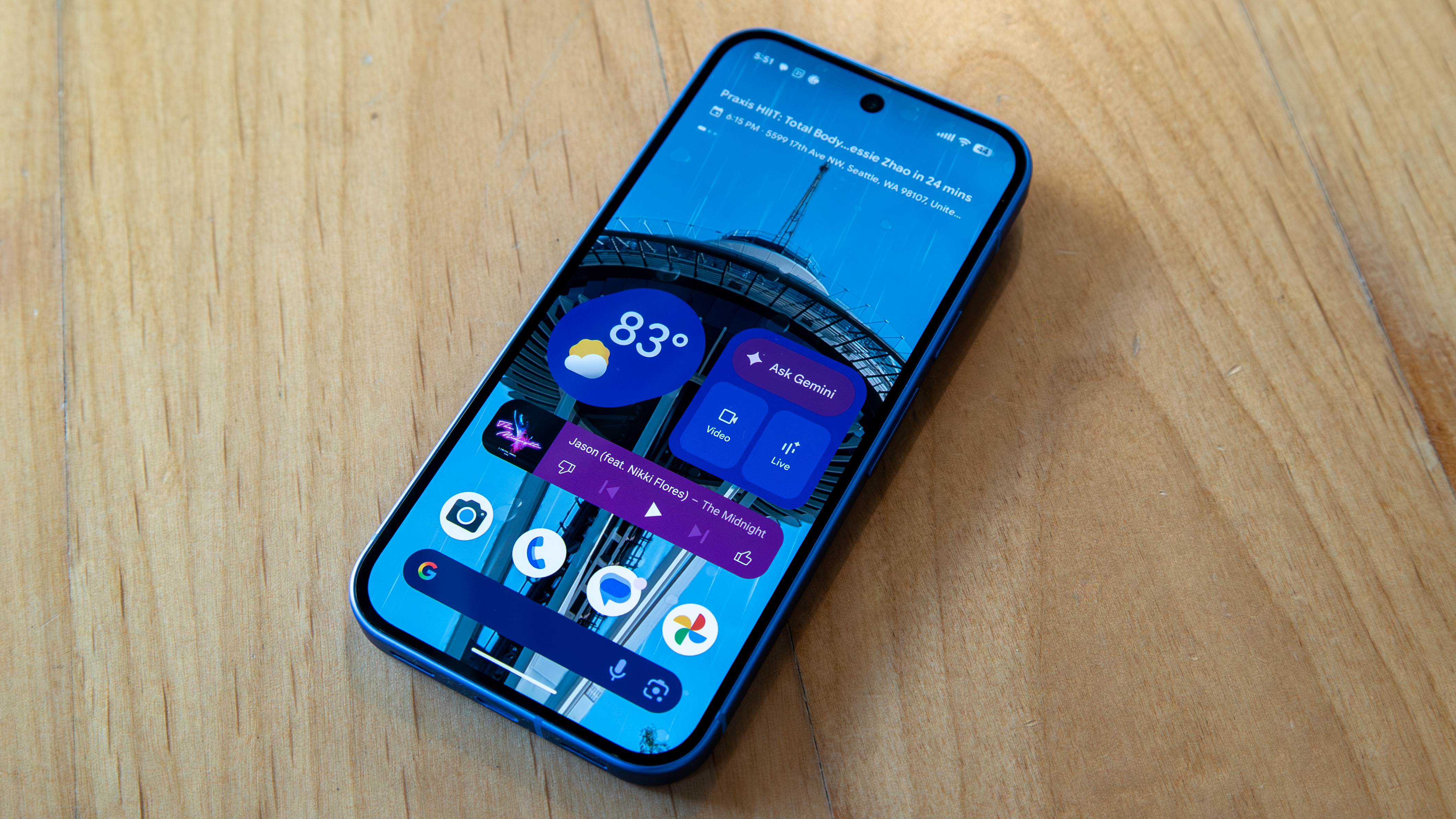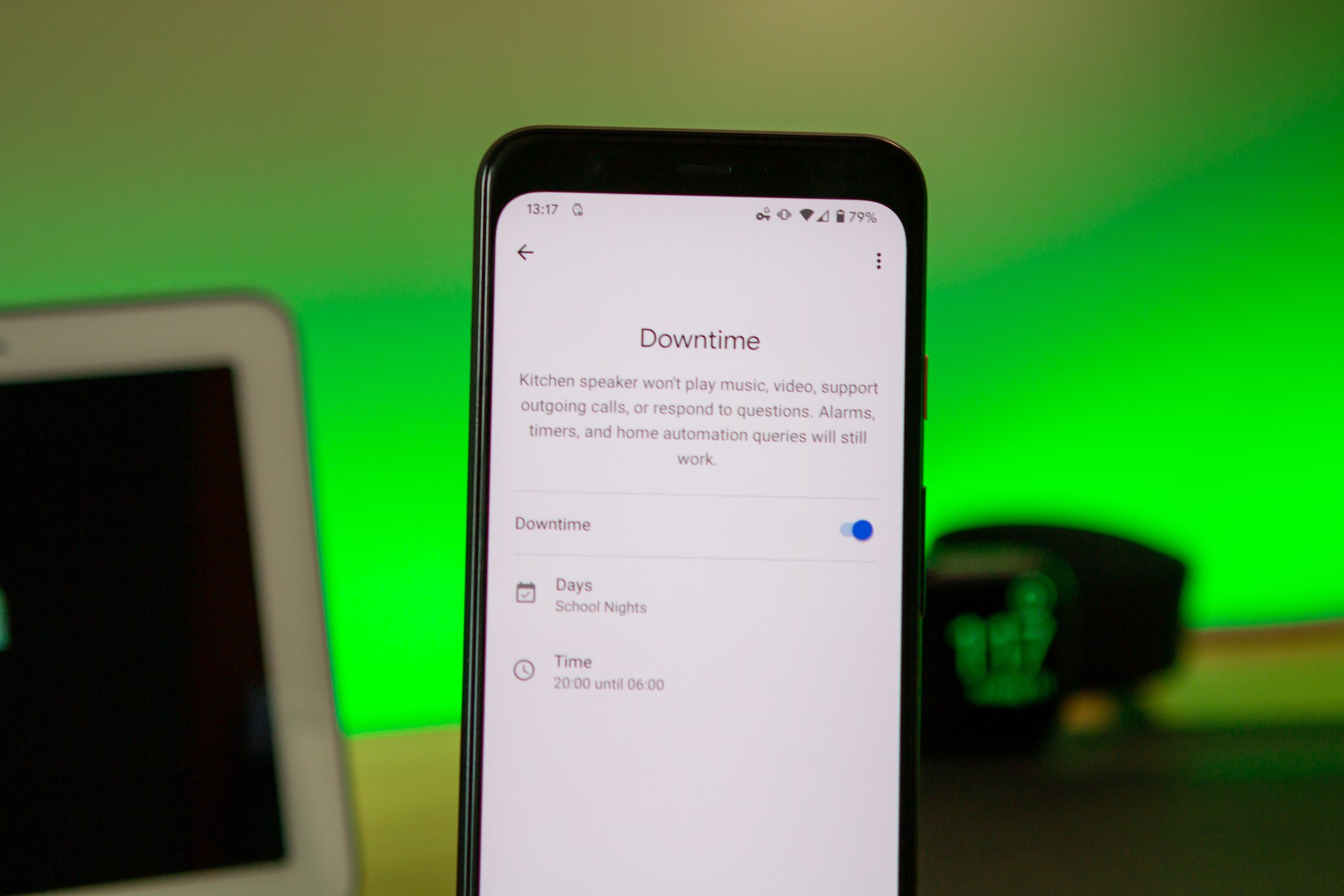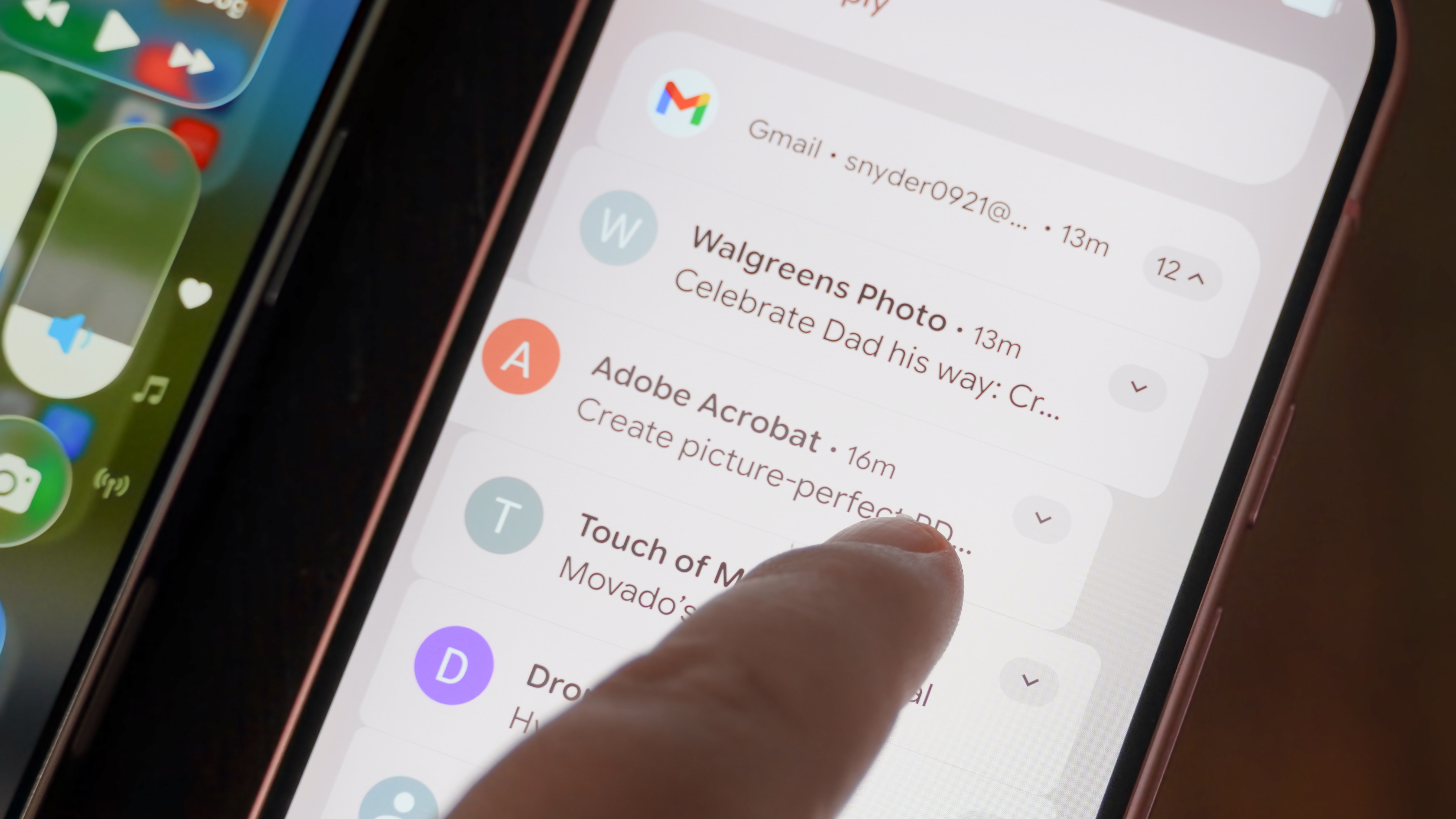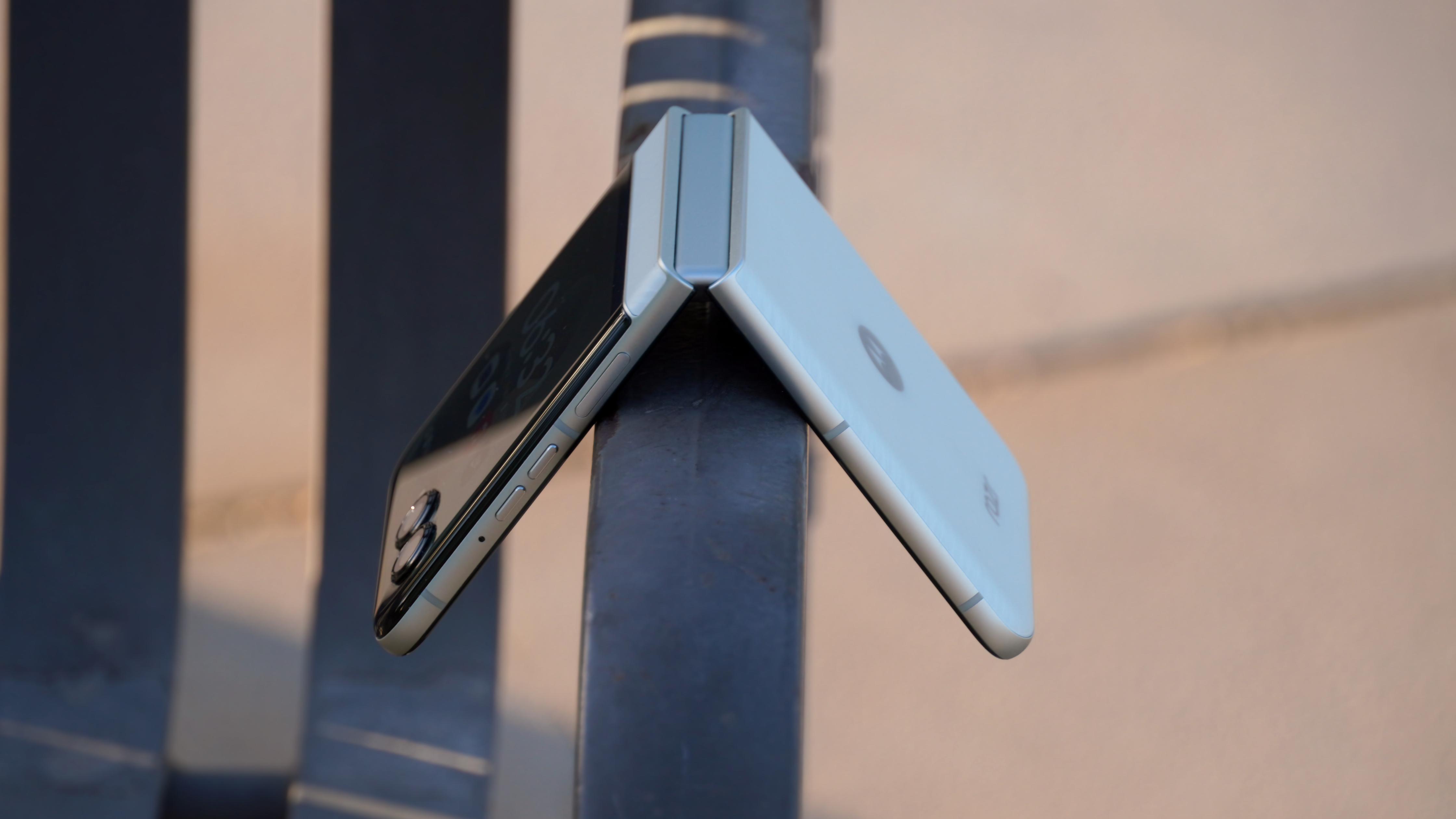Smartphone addiction is real, and it can be terrible
Your phone can never love you back.

Enjoy our content? Make sure to set Android Central as a preferred source in Google Search, and find out why you should so that you can stay up-to-date on the latest news, reviews, features, and more.
I'm going to forego the usual light-hearted weekend banter today, because I want to talk about something I just met head-on, didn't know much about, as learned how terrifying it can be. I'm talking about smartphone addiction.
Yes, it's a real thing. Yes, it can be really bad.

One of the web's longest-running tech columns, Android & Chill is your Saturday discussion of Android, Google, and all things tech.
In an increasingly connected world, smartphones have become indispensable tools, woven into the very fabric of our daily lives. From navigation and communication to entertainment and work, our pocket computers offer unmatched convenience and access to information.
Yet, like any powerful technology, they can come with a potential dark side: smartphone addiction. This isn't merely about enjoying your device; it's about a compulsive and excessive engagement that can negatively impact mental health, relationships, and overall well-being.
What is Smartphone Addiction?

Smartphone addiction, often referred to as "problematic smartphone use" or "nomophobia" (no-mobile-phone phobia), is characterized by an uncontrollable urge to use your phone, leading to potential consequences in other aspects of life. It’s not officially recognized as a clinical disorder in the Diagnostic and Statistical Manual of Mental Disorders (DSM-5), but its symptoms and effects mirror those of other behavioral addictions, and many health care professionals recognize this.
Reading through material on the web, these are often indicators of smartphone addiction:
Preoccupation: Constantly thinking about your phone, even when not using it.
Tolerance: Needing to use your phone for increasingly longer periods to feel satisfied.
Withdrawal Symptoms: Experiencing anxiety, irritability, restlessness, or depression when unable to use your phone.
Loss of Control: Repeated unsuccessful attempts to cut down or control smartphone use.
Negative Consequences: Continued use despite knowing it's causing problems in relationships, work, school, or physical health.
Sacrifice of Activities: Giving up important social, occupational, or recreational activities because of smartphone use.
Deception: Lying to family or friends about the extent of your smartphone use.
Mood Alteration: Using your phone to escape problems or relieve feelings of helplessness, guilt, anxiety, or depression.
Get the latest news from Android Central, your trusted companion in the world of Android
It's important to distinguish between heavy smartphone use and addiction. Many use their phones extensively for work or social connections without experiencing negative impacts. The critical difference lies in the loss of control and the resulting impairment in daily functioning.
Like alcohol or gambling, it's so much of a "normal" thing that it can ruin your life. And if you're affected, you probably can't "fix" it alone.
Who Can Be Affected?

The reality is that anyone who uses a smartphone can potentially develop problematic usage patterns. However, certain factors may increase vulnerability.
Adolescents and young adults are still developing and face immense social and peer pressure. Often accompanied by FOMO (fear of missing out) and a need for validation, this can make a smartphone feel more important than it should be.
Folks with low self-esteem or other existing mental health conditions often use their phone as a way to cope or escape, or even as a distraction from stress. This can deepen the reliance on the phone for comfort.
People who are otherwise isolated or feel like they are may turn to a phone as a lifeline to the "real world". I can totally understand this, as my physical health issues sometimes keep me indoors and feeling alone for a week or more. It's tough.
I'm far from being a medical doctor or clinician, but after reading what qualified people have to say, this makes sense to me. We all use our phones as a crutch from time to time and can feel like we depend on them. For some, this feeling of dependency simply doesn't go away. It's crucial to remember that addiction is complex and often multifactorial. While some individuals might seem more prone, responsible and mindful use should be a goal for all of us.
Getting help before it's too late

Phone makers have realized they can help combat any addiction issues by giving us tools to thwart them. I'm familiar with how Android does it, so that's what I'm diving into here, but Apple and Microsoft (tablets and laptops have an addictive screen, too) also have similar tools and utilities in place. These can empower us all to manage our smartphone habits and maybe stop a problem before it is created.
The central hub for managing your digital habits is the Digital Wellbeing Dashboard. It provides things like daily usage reports so you can track how much time you really spent staring into the screen, how long you spend on a particular app, or even how many notifications you get. Try it, it's bound to be an eye-opener.
On the utility side, you can also set app timers to place a daily limit on how long you can do things like scroll Instagram, and once the time is up, the app is done until tomorrow. Focus Mode can even pause the apps that distract you the most, and they stay muted and out of the way until you turn it off.
The way your screen looks is important, too. When you remove much of the bright color, your phone becomes far less visually stimulating. For some people who crave that stimulation, grayscale mode can be helpful.

Android is also so good at notification "management," and it would be a shame not to use it. With almost complete granular control, you can turn off notifications for specific apps, choose for some notifications to be silent, only receive "priority" notifications that require your attention, and enable Do Not Disturb mode, which can stop all notifications or allow specific people to get in touch with you.
.These built-in Android features are not magical cures, but they are powerful allies in the fight against smartphone addiction. By actively using them, we can try to regain control over our digital lives, foster healthier habits, and ultimately enhance our overall well-being.
If you think you might be spending too much time with your phone in your hands but can't do anything about it, the web is full of places that can offer help.
A good place to start can help you assess your situation and help decide the right course of action, so you're happier. Being happy is what really matters.

Jerry is an amateur woodworker and struggling shade tree mechanic. There's nothing he can't take apart, but many things he can't reassemble. You'll find him writing and speaking his loud opinion on Android Central and occasionally on Threads.
You must confirm your public display name before commenting
Please logout and then login again, you will then be prompted to enter your display name.
